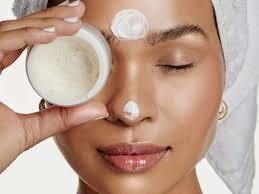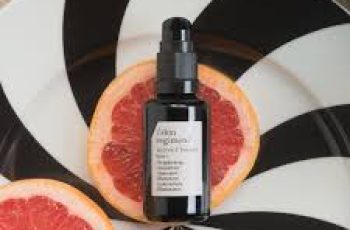
Clean Skin Care and Clean Beauty: Are They Worth It?
The beauty industry is flooded with terms like “clean beauty” and “non-toxic skincare,” which are designed to attract consumers who are looking for safer, more ethical options.
But what does “clean” really mean in the context of skincare? Are these products actually better, or is it more of a marketing gimmick?
Let’s break it down to understand what “clean” skincare means, its benefits, and whether or not it’s worth the extra cost.
What Does “Clean” Skin Care Really Mean?
In its simplest form, clean skincare refers to products that are free from ingredients that are believed to be harmful to your health or the environment.
But there’s no universal definition of “clean.” The term is often used in marketing, but its meaning can vary widely across brands, stores, and even individual products.
Some common claims made by clean skincare brands include:
No harmful or toxic chemicals (e.g., parabens, sulfates, phthalates)
Cruelty-free (no animal testing)
Eco-friendly (sustainable sourcing, recyclable packaging)
However, the challenge with “clean” beauty is that the term isn’t regulated, and there is a lot of ambiguity around which ingredients are truly “unsafe.”
Some ingredients labeled as “toxic” have little to no scientific evidence supporting the risks, while others are outright harmful.
Clean Skin Care vs. Non-Clean Skin Care: Is There a Real Difference?
While there’s a push for cleaner, more natural products, clean beauty doesn’t necessarily mean better skin results.
In fact, in some cases, clean products may even be less effective than their traditional counterparts. Here’s why:
Lack of Scientific Definition: As mentioned, there is no universal definition of clean skincare.
Each brand and retailer (like Sephora, Target, or Whole Foods) has their own set of standards, which can vary widely. This makes it hard for consumers to know exactly what they’re getting.
Marketing Over Science: Many companies use the “clean” label to attract health-conscious consumers, but sometimes the ingredients chosen for “clean” products are more about marketing than actual efficacy.
Some natural ingredients, for example, can be just as irritating or harmful as synthetic ones.
Safety vs. Efficacy: Just because a product is free of parabens, sulfates, or phthalates doesn’t automatically make it more effective.
In fact, some natural or “clean” products might be less effective at treating certain skin concerns because they lack scientifically proven ingredients like retinoids, peptides, or high concentrations of actives.
Who Should Use Clean Skin Care?
Clean skin care is especially important for people who are at higher risk of exposure to harmful ingredients. This includes:
Pregnant and Breastfeeding Women: Certain skincare ingredients like retinoids and parabens can have potential risks during pregnancy.
Clean skincare can offer peace of mind when it comes to avoiding these ingredients.
Babies and Young Children: Children’s skin is more sensitive and absorbs ingredients at a higher rate than adults.
They are more vulnerable to the adverse effects of harsh chemicals, making clean skincare essential for young ones.
People Trying to Conceive:
Some chemicals in skincare can affect hormones and fertility, so those planning to conceive may want to use clean skincare to avoid ingredients that may impact their reproductive health.
Health Risks Associated with Non-Clean Beauty Products
Not all skincare ingredients are created equal. Some ingredients have well-documented health risks, including:
Allergenicity: Some skincare ingredients (like fragrances or certain preservatives) can cause allergic reactions or irritate the skin.
Carcinogenicity: Certain chemicals, like formaldehyde and some preservatives, have been linked to cancer in some studies.
Hormonal Disruption: Ingredients like parabens and phthalates can mimic hormones in the body, potentially disrupting your endocrine system.
Reproductive Toxicity: Chemicals like phthalates and some sunscreens can affect fertility in both men and women.
Neurotoxicity: Some synthetic chemicals can cause neurological issues when absorbed over time.
The Myth of “Non-Toxic” Skin Care
When shopping for skincare, many people are drawn to products labeled “non-toxic.”
But here’s the thing—toxic refers to substances that can cause harm in large quantities, not necessarily in the context of skincare.
In reality, many ingredients commonly found in skincare products (even “non-toxic” ones) can still cause irritation, sensitivity, or other reactions, especially when combined with other products in a skincare routine.
It’s more accurate to talk about hazardous ingredients (ingredients that pose a health risk) rather than using the blanket term “toxic.”
Natural ingredients can be just as dangerous as synthetic ones. For example, cocamide DEA, a coconut-derived ingredient, can form carcinogenic nitrosamines when exposed to certain other chemicals.
Clean Skin Care Routines: The Right Way to Combine Products
Even if a product is considered “clean,” it’s important to remember that how you combine ingredients and the order of application in your skincare routine matter.
Some safe ingredients, when mixed improperly, can form harmful compounds that negate the benefits.
For instance:
Certain acids (like AHAs or BHAs) can make the skin more sensitive to other ingredients.
Vitamin C and retinol may degrade each other when used together.
Therefore, it’s not just about selecting “clean” products but also layering them in a way that maximizes their effectiveness while minimizing potential harm.
Clean Beauty Standards and Certifications
There is no single, universally agreed-upon definition of what makes a beauty product “clean.”
However, some organizations and brands provide seals or certifications that can guide consumers in their purchase decisions:
EWG Verified: The Environmental Working Group offers ratings for the safety of cosmetic ingredients based on their potential to cause health problems.
Leaping Bunny: This certification ensures that the product is cruelty-free and not tested on animals.
USDA Organic: For brands claiming to be organic, this certification ensures that at least 95% of the product’s ingredients are organically grown.
Vegan and Cruelty-Free: These labels indicate that the product does not contain animal-derived ingredients and has not been tested on animals.
But even with these certifications, it’s important to look deeper into a product’s ingredient list and to research how the ingredients work with your skin type.
Do Clean Beauty Products Really Work?
The effectiveness of clean products depends on several factors, such as:
Your Skin Type: What works for one person may not work for someone else.
Product Quality: Not all clean products are formulated with high-quality ingredients.
Layering and Routine: The order in which you use your products can impact their efficacy.
It’s also important to keep in mind that some clean products may not provide the same intensity of results as medical-grade or traditional skincare products, especially when dealing with conditions like acne, hyperpigmentation, or aging.
How to Know if a Brand’s Clean Standards Align with Your Values
While ingredient safety is an important factor, choosing skincare based on your personal ethics and values is equally crucial. Here are some considerations:
Cruelty-Free: Does the brand test on animals?
Ethical Sourcing: Are ingredients sourced responsibly? Is the brand involved in fair trade?
Environmental Impact: Does the brand use sustainable packaging or renewable resources?
Vegan: Does the brand avoid using animal-derived ingredients?
Recycled or Biodegradable Packaging: Does the brand prioritize eco-friendly packaging?
While “clean” skincare can reflect these values, it’s important to dig deeper into a brand’s practices to ensure they align with what matters most to you.
Conclusion: Is Clean Skin Care Worth the Extra Expense?
While clean beauty products can offer safer alternatives to potentially harmful chemicals, there is no one-size-fits-all solution.
The lack of a clear definition of “clean” and the variability between brands and stores make it difficult to guarantee that these products will be significantly better than traditional options.
For those with sensitive skin, a history of allergies, or concerns about pregnancy, clean skincare may be the better choice, but for others, it’s essential to consider individual ingredient safety and compatibility with your skin type.
Ultimately, clean beauty doesn’t automatically mean better results, but it can be a great option for those who prioritize health and sustainability over other considerations.
If you’re unsure, take the time to educate yourself on ingredients, understand your skin type, and look for products that are truly effective and safe for your needs.


